This is a podcast episode that you can listen to above, or with these links to Apple or Spotify. Or you can read this episode as a piece of writing below.
Apple Podcasts here, Spotify here
Shedding Skin - Confessions of an Itchoholic
Episode 3 (out of 10) - Allergies
Subheadings with durations
Growing Up (6.24)
Cultural Allergies (4.45)
Wisdom (3.42)
Fear (3.11)
The Allergy of Advertising (7.39)
Sugar (3.33)
Break In (5.24)
Shedding Skin - Confessions of an Itchoholic is my memoir of growing up with a body that was not east to inhabit. It will be released an episode each week for a few months. Citing neuroscientists, philosophers and modern-day poets (rockstars) and exploring the 90s popular culture that shaped me (its music, movies and video games), Shedding Skin is a rollicking, humorous ride of self-analysis about the confusion and alienation of growing up with chronic health battles, the disorientating effects of coping mechanisms (like alcohol and drug dependencies), and my eventual flailing attempts to understand how to live a deep life whilst struggling with new parenthood.
.
Shedding Skin was long listed for the Richell Prize for emerging writers in 2023.
Chapter 3 – Allergies
With the lights out, it's less dangerous
Here we are now, entertain us
I feel stupid and contagious
Here we are now, entertain us
A denial, a denial, a denial, a denial, a denial, a denial, a denial, a denial
Kurt Cobain, Nirvana (1991)
Smells Like Teen Spirit
Growing Up
It was around this time, a year or two after we moved to Queensland, that I began waking up from my initial childlike state, a sort of phase shift of development as I grew and began to attempt to understand more of the world around me as I moved into early teenager-hood.
As hard as they were, the Wonder Years were ending.
I was spending less time playing with my sister.
She was a full teenager by now, immersed in mid-90s-teen-culture. Gone were the Kylie Mole stickers, Comedy Company cassettes and cabbage patch dolls, replaced with hyper-colour tee-shirts, denim jackets and CDs like Jagged Little Pill to listen to whilst reading Girlfriend magazine surrounded by pin up posters of Stephen Dorff and Dieter Brummer. If she wasn’t polishing her Dr Martin’s whilst watching Blossom on TV, she was recording B105s Top 20 countdown onto cassette so she could play chart toppers at sleepovers with her girlfriends. Little of this made sense to me - we were going our separate paths through the maze of adolescence after so much lovingly bonded brother-sisterhood time.
I was changing too. Physically, my battle with my skin raged. My primary weapon to counter this was to wear t-shirts that were 4 or 5 sizes too large for my puny shoulders and chest, hiding as much skin real estate as I could, drowning my unsightly limbs in cotton.
Mentally, a lot was going on. I began to experience a mini maturation/metamorphosis that shaped my experience of my early teens in two primary ways.
The first was a realisation that was not explicit to me at the time, and remained hidden underneath, deep in my subconscious:
1. I felt like I was useless. There was a story in my head that I could never get anything ‘right’, that I was low on ability and that my family were not proud of me, embarrassed by me even. That I was in many ways a shameful creature
Maybe this was normal adolesce stuff.. Chris Cornell, the lead singer of Soundgarden and Audioslave once said “"I remember having more fun when I was 9 because I hadn't started becoming depressed yet. At 11 you wake up one day and start feeling bad about everything."
The second set of sensations were felt and were explicit – I could feel them, notice them and did so for the rest of my confusing adolescence:
2. There was something a bit wrong with the world, or at least the part of the world that I was experiencing (my culture). There were things I wasn’t being told about life, things that were not explained to me, questions I had that I felt I couldn’t ask.
I intuited this second part, but it made me feel off and confused. I began noticing it by listening to the things people were saying, and then seeing with my own eyes and feeling with my own senses that what they were saying couldn’t be true. I felt in some ways detached from the culture that was shaping me, its inauthenticity seeping into me via osmosis. I felt that I didn’t fit anywhere, including and especially inside my own family oftentimes, but also out in the world and in society at large. The biggest part of this realisation was this - people didn’t seem to know what they were talking about even as they acted as if they did.
It felt like most things were fake. People seemed to be play-acting at how to be human.
For 12-year-old me, this was a disconcerting turn of events. What was happening? Was I intuiting that people often existed somehow closed off from themselves and their own authenticity, despite not knowing exactly what that meant?
Was a just a normal kid hitting up against the vastness of what I didn’t yet understand about people and society?
In her book Untamed, the author Glennon Doyle speaks of our cultural ‘taming’ as we grow and learn about the world as a sort of ‘set of rules’ about how we should act:
“Ten is when children begin to hide who they are in order to become what the world expects them to be. Right around ten is when we begin to internalize our formal taming. Ten is when the world sat me down, told me to be quiet, and pointed toward my cages.” (26)
Each human is a unique product of their specific nurture environment. The human brain (you now, that blob in your head that’s the most complex structure in the known universe) is a master in adaptability. It’s humankinds’ primary evolutionary advantage – some animals are fast, some are good at hiding, some have incredible defence mechanisms. Humans can adapt to their specific environment like no other animal, has served us well considering we have spread all over the world and into every environmental niche imaginable, but also because our environments are fluctuating so quickly with the rapid pace of technology and cultural change. So it stands to reason then that each one of us is incredibly specifically adapted, ‘soft-wired’ if you will, to the completely unique environment we were raised in. (Thank you for indulging in my amateur anthropological rant…)
My brain was no different, it was a malleable and pliable grey mass of electricity that was being wired up and shaped by the full gamut of human forces; familial and social rituals and norms, interacting with hierarchical structures like education and health systems, interacting with popular culture like TV and movies and music but also advertising and brands, interacting with the capitalist system and work and money (the bedrock of our Western civilisation!), plus other sociocultural forces like masculinity, primary and secondary relationships and eventually mate selection.
Then there was my health.
Everything in my physical life was allergens and symptoms and allergic reactions and ‘take this medicine’ and ‘avoid this trigger’ and the ever-exhausting merry-go-round of a chronic, reactive body. My mind was starting to think in this way about the things I experienced outside my body, to overlay this language onto the culture I was experiencing. These newly emerging feelings that arose from my sense of dislocation and confusion about how to be felt like ‘cultural allergies’.
Cultural Allergies
What were these cultural forces I was beginning to feel ‘allergic’ to? It is only in retrospect that I can list them all here, they were not all fully explicit to me at the time, but they were forming in my mind, coalescing ideas like iron fillings attracted to a magnet, fanning out into shapes and a narrative that made little sense to me then, yet would repel me with a force that was not possible to ignore, much like a physical allergen. They included:
· Inauthenticity
· Simple, dismissive solutions to complex problems
· “Do as I say not as I do” (an offshoot of inauthenticity)
· Small talk (another offshoot of inauthenticity)
· Advertising and ‘selling yourself’ (another offshoot of inauthenticity)
· Fundamental thinking (or certainty / lack of nuance / inability to say 'I don't know')
· ‘Toughness’ as a masculine trait
· Being told not to ‘react’ a certain way (or being told to only react a certain way)
· Formality of any type – religious/cultural rituals (including seasonal events like Christmas and Easter), school formalities, familial formalities
Put most simply, the presence of these things caused in me some sort of felt, negative and ‘allergic’ reaction.
Further to the above, there was a feeling of the absence of things, a vacuum of values that seemed to be filled with the ‘fake-ness’ of the above ‘allergies’, including:
· Vulnerability
· Honesty
· Moral doubt
· Emotional intelligence
· Understanding of pain and suffering
· Discussion about one of the immutable laws of human existence - mortality
These feelings were very confusing. I had my physical life – the hurt and frustration of my explosively reactive body and my social need to hide and fly under the social radar, and I had my cultural anchors being ripped up by sensations that I was living in some sort of simulation that was coded wrong. Or perhaps I was coded wrong.
It’s notable that I didn't choose these virtues; they felt built into me somehow. I wasn’t some wise sage purposefully conjuring the most sought-after human qualities. These needs, as represented by my ‘cultural allergies’, were residing inside me prior to me being conscious of what my life was about, and much like the maternity ward newborns whose essence defies descriptive words, these feelings were not intelligible to me at the time. I couldn’t articulate them. I couldn’t intellectualise them. I couldn’t understand them.
I felt them.
They existed in my body, and my mind, as some sort of physiological response to what I was experiencing, and these ‘meta’ sensations were signalling to me important things about the world that would take me decades to unpack and comprehend. It was like my soul was leaking through the rational cage my mind firmly erected around me to try to comprehend the world.
Looking out at the people around me, they seemed to have little room for doubt. This is how you should live. In this paradigm, there was almost no room for discomfort, or for pain, or suffering (the very purveyors of doubt and uncertainty) or questions of meaning. Pain, suffering, emotional and physical ‘weakness’ was to be hidden from others because it wasn’t sure, it wasn’t strong enough to know the answers, it promoted the intolerability of inaction, when all we often want as humans is to know what to do, to take some action, take our future into our hands and make a fucking decision that helps us move forward. It was idealised to ‘Keep calm, and carry on’ (whilst ignoring the truth of how you feel).
As a chronic health sufferer, marinating in doubt, this elusive ‘knowing’ that lead to the ‘decisions’ to ease the burdens was constantly falling through my fingers like fine sand.
I couldn’t understand how people would defend the way they blindly acted without ever questioning their own impulses. I constantly felt like I had no idea how to act, was steeped in moral doubt, but when asked (or told) to act a certain way, I felt disconnected and like simply following orders was demeaning, controlling or oppressive.
There is a cognitive bias called the Dunning Kruger effect where people overestimate their competence in any given area of social or intellectual understanding relative to other people. Put another way, the more you know about a specific topic or thing, the less you think you know, or the less certain you are, about mastering that thing because you can see more fully it’s complexity – so there is an inverse correlation between expertise and certainty of understanding. The opposite of this is the less you know, the more certain you can be. Mental alarms should go off inside the mind of anyone surrounded by people absolutely convinced they know everything about things.
Wrapping my rational, ‘understanding’ brain around these ‘word less’ sensations, these emergent values of mine that were presenting as feelings, I grappled with the certainty that was presented to me and the schism created by the uncertainty I felt.
Wisdom
It was around this time that my Dad and I found ourselves operating at different frequencies, not least of all because of my growing sense of teenage disaffection. I was beginning to bristle at his authority as I attempted to develop my own sense of who I was in separation from him and authority in general. This is a rite of passage gauntlet that all teenage boys must walk in their relationship with their fathers or father figures, and it wasn’t easy. I recall these words firmly and frequently said to me and my corresponding mental, meta responses to them (that were never spoken):
“Stand up straight!” – I can’t, my shoulders were slumped from birth, and I have no back muscles because I am clearly the runt of the litter.
“Get out of bed!” – I can’t, I haven’t slept properly, and my body is racked with inflammation.
“Look people In the eyes when you talk to them!” – I can’t, their raw humaness shines through those soul windows, and I’m too scared by my own humanity to face anyone else’s.
“Stop scratching and picking at your skin” – I fucking can’t!
“Don’t be so cheeky” – Sorry, I must be cheeky, this is not a choice, it’s a reaction as natural as breathing.
On that last one - exposing hypocrisy with humour/sarcasm/cynicism was the one thing I could cling to that made sense. Cheekiness appears to be a built-in trait that emerges in children to subvert seriousness and rules and to push boundaries. I’ve seen it in my own rapscallion kids from the age of 18 months – they learn the social rules, and they quickly learn how to break them so they can swiftly take the piss and point out how useless you are at parenting.
Part of all this is realising for the first time your parents (or any figure of authority) are fallible beings and not the Gods you though they were, a normal phase of growing up. It wasn’t as if my parents were wrong to be expressing these things to me, they were imparting their wisdom about how to be in the world the best way they knew how, but the disconnect with what I was seeing/hearing/experiencing externally and what I was feeling inside (and my inability to articulate those internal states), my reactions to their (necessary) authority is the point here. A cavernous gap was widening between how I was expected to act, and how I felt about how to act.
The impulse to get your children to act a certain way is very, very strong - I have felt it when parenting my own children. The idea is not only that there is a ‘correct’ way that they should be acting, but that:
a) they should magically know what that is, and
b) they should ‘choose’ to act that way in the pursuit of living a life that matches with their parents’ values
If they ‘choose’ not to, then they are being something less that the ideal version of themselves in the parents’ eyes; lazy, selfish, inconsiderate, rude, a disappointment.
This parenting instinct is understandable because we want to pass to children values that we hold dear because as parents we are operating from an axiom that those values are worth having. This is what guiding these balls of untrammelled energy is like - we need to protect our children and raise them right. Won’t somebody think of the children! And one way we do this is by trying to get them to act the way that we want because as parents we know the best way to act.
Assumedly. But not always?
Probably infrequently. Rarely?
Do we know the best way to act?
Fear
Children require their parents fear (enacted as protective, often ‘controlling’ behaviour) to keep them from hurting themselves and sometimes dying. This is terrifying as a parent – especially a new parent.
Oh my god I have to keep this crazy entity alive! They are irrational, highly emotive, volatile, and often act insanely.
It turns out they are this way by design. They need to gradually expose themselves to the ways of the complex world by taking risks and exploring the boundaries of themselves and the physical and social world (normally through challenge, hardship or pain) by taking risky actions (with guidance from elders to avoid catastrophe) in order to map what the world is and create a simpler model of its complexity in their brains in order to navigate it.
Children seem to absorb from their parents ‘ways to act’ more from copying the ways they see their parents act, than what the parents say to them (or shout at them) about how to act. This is called modelling. I’m convinced that my own boys only absorb, interpret, and enact upon approximately 4% of the words that I actually say to them, yet they are obviously digesting the behaviours they see me enacting mimetically in ways that I am yet to fully comprehend. We can’t ask them to act a differently to the way we are acting.
The protective instinct in fathers can easily turn into a need to control children (out of a realistic fear that something bad will happen), which can sometimes turn into tyranny.
How much should we curtail our children's actions to cater to our fears of risk mitigation or our desire that they act ‘normally’ or ‘appropriately’ in any given situation, and how often should we let them be, sit back and watch without judgement however they act and accept the consequences?
When do we demand a change in behaviour, and when do we accept that behaviour is emergent and always speaks to profounder rumblings and happenings down in the depths of their developing psyches?
When are we making our kids fearful, instead of helping them face their fears? As Thich Nhat Hanh puts it, “Fear brings about that which one is afraid of”. (27)
Exactly how much fear, risk management and control is required to keep a child safe, but still satisfy the requirement to expose them to enough hardship so they learn to survive *without* the parents help and without the parents fears? (This is, after all, what we are doing as parents - building people who can eventually care for themselves.)
I don’t have the answers to all these questions as a parent in these here 2020s, but at the time, in the early 90s, all of this was overwhelming me as I found myself being told how to be by everyone and everything around me. The requirement to ‘act a certain way’ was creating an oppressive, confusing feeling that made me feel that anyone who was expecting me to ‘live like this’ without any ability to explain explicitly why this was the only way, was deluded and creating a false sense of reality.
One time a thing occurred to me
What’s real and what’s for sale?
Flies in the vasoline we are
Sometimes it blows my mind
Keep getting stuck here all the time
Scott Weiland, Vasoline (1994)
Stone Temple Pilots
The Allergy of Advertising
More cultural allergies began to emerge. I simply despised, with everything in my entire oversensitive nervous system, advertising, and marketing. Almost all the advertising I absorbed was through the same medium that everyone else who grew up in the 80s and 90s was exposed to it – television.
A lot of this advertising was about perfect skin.
“Because you're worth it.”
Sleek. Supple. Sensual, skin.
Often with graphics overlaid to prove it’s sleek and supple and sensual-ness. This skin floating on the screen in our living room and clinging firmly to the supermodels skinny frames was flawless, blemish free, achingly beautiful, and perfectly unobtainable.
“Just imagine what your life could be, Nick, if you had perfect skin like us!” the models would flirtingly coo at me, offering up their overpriced potions with patented molecules and ‘natural extracts’ and purifying and hydrating exfoliating antioxidants. And I did imagine.
Every single day.
I compared their perfection to my disaster and those comparisons lodged deep into my subconscious.
Of course, there was more to advertising than the teasing of impossible skin. So much more! Cadbury used fluorescent wind surfers to convince me to 'change the colour of my day' (which meant ‘have a more exciting life than you currently have’) and somehow this was correlated with buying and consuming honeycomb ‘crunchie’ chocolate bars.
Many ads weren’t even aspirational, just repetitive – I recall that Lube Mobile's number was 13 30 32, as sung by a toothless, mullet-haired kid in a catchy jingle. (“Lube Mobile will come to you”). I remember the McDonald’s ad where a man walks to the counter then in one breath orders the entire menu. This man went on Hey Hey it's Saturday to perform the same feat in front of a live audience, and of course my family and I were in our lounge room watching when he did. It then follows that my sister and I had to learn how to say this entire monologue perfectly (it was conveniently printed on the sides of the takeaway bags that year). Very concerningly, I can stil recite it to this day.
What valuable knowledge, I often wonder, has been kept from my brain over the years for this advertising campaign to remain firmly wedged in there? The valuable things that have been lost cannot be listed, only the worthless things that remain.
Thank you, Mr Hooker. Sick ‘em Rex. I feel like chicken tonight! I’ve got a problem with my Goggomobile. Just like a chocolate milkshake only crunchy. This man is a dentist so we can’t show you his face on television. Maybe she’s born with it? You just can’t top the ‘copper top’. Light on the fizz so you can slam it down fast. You used to look great in a mini.
Plus, my favourite - Love the skin you’re in. Thanks for that one. (Fortunately, and thanks to my literal rather than metaphorical allergies, I never ‘Nibbled Nobby’s Nuts’).
I’ve heard these words intoned and spoken and sung to me more times than I’ve heard almost everything else in my life, repetitively drilled into my grey matter, corrupting, confusing, coercing, proclaiming scarcity and promoting insufficiency. Advertisements aim to take away the uncertainty of your life by offering you a ‘solution’ – and it was this ‘certainty’ that triggered me.
Imagine the hyper novel environment of a small boy (whose ancient ancestors lived in caves and marvelled at imagined and mythical creatures in the night sky) with a cathode ray tube pointed straight at his vulnerable pre-teen brain soaking up the perfect-skinned messaging of multi-national corporations.
The fundamental guiding philosophy of advertising is to make people feel inadequate, and then provide the solution to that feeling, thereby influencing their decisions. Philosopher Rene Girard called this ‘memetic desire’, which stokes our need to imitate people who we see modelling value to us – which is what advertising does. Many of the choices that we make as people are a battle between our immediate reward systems, and success and contentedness and survival over a longer timeframe (delayed gratification again). We know that marketing exploits these poorly organised rewards circuits to extract our value as agents inside the capitalist system as consumers.
Is it possible that the perfect consumer, the very agent the worlds mega corporations were trying to create back in the 90s to sell their wares to is not actually a very good human capable of making very good decisions?
This would be someone who:
· Is impulsive
· Has a lot of needs they require to be satisfied and limited wisdom at hand to satisfy them
· Is salient to being highjacked by information (ie believes easily what is presented to them)
· Doesn't or can't weigh up the pros/cons of their decisions
· Is looking for modelling of how to live because of a dearth of such modelling in 'real life' (advertising models a way of being and then frames it as aspirational, or frames anything less as insufficient)
· Has binary thinking (I have a problem, I need a quick solution)
I'm not saying people who consume don’t know how to live. I'm saying that the ideal version of a consumer to the advertisers would be someone will little self-agency who is superficial in their appraisal of value and can be easily manipulated. The outcome of which would be the corporation's very communication techniques push people further away from themselves, further from good sense making and disrupt their choice making in negative ways by design.
It won’t happen overnight. But it will happen.
I explain all of this because I ended up becoming exactly the person that I have described above, a perfectly addicted and compulsive consumer. The most valuable customer imaginable! My insecurity was firmly correlated with the need to buy stuff, like a hamster trapped on a hedonistic treadmill, unable to self-regulate. Even though I felt assaulted by ads and jingles and slogans and logos, I couldn’t get away from them - I was created by the forces of these systems to interact with them exactly the way ‘they’ wanted, and it worked.
Yet, there was a subconscious part of me that intuitively knew I needed to minimise my exposure to these forces to protect my vulnerability. My minimisation techniques, limited mostly to muting ads whenever possible, failed miserably because the most reliable way of making people believe in falsehoods is with repetition.
Sugar
It stands to reason then, that my first, true, deep love would be sugar.
I regularly ‘changed the colour of my day’ (and my teeth) by munching down on lollies and chocolates and whatever I could get my hands on.
Oh, the sweet caress of lady sucrose, how she teased and delighted me! And how she eventually corrupted and highjacked me! The milky bars were literally on me, folks.
I could not get enough.
If the entirety of the chocolate bars and lolly packets that I consumed during my youth was shown in one place, it would be like one of those giant warehouses were they store raw sugar in mountains, and you could climb the pile then slide down the other side like a sandhill. Chocolate buttons from the tuckshop at school. Boysenberry Billabong ice-creams from the fish and chip shop after tennis practice. Lime cordial for afternoon tea (with a high ratio of cordial to water). I needed that hit, that high of sugar coursing through my veins, and I was not able to delay that gratification at all. Sometimes, a mere 30 minutes before dinner was called, I would jump on my bike and rush to the newsagent down the road to secretly scoff a bubble-o-bill or a milky way.
The solution to my ills (you know, ‘ills’, that vacant, disconnected feeling of deficiency) was presented to me virtually on the screen in our living rooms, and the bulk of it was in the form of sugar – sucrose-drenched cereals that were “iron man food” and the aspiration of athletic looking people enjoying “a Mars a Day” which helped them ‘work, rest and play’, playgrounds full of perky, colourfully dressed kids that had ‘gotta be made of milo’ whilst sharing skittles so they could “taste the rainbow”. What a wonderful world it was, where cartoon animals played with each other and dived into unnaturally coloured cereal and beckoned me to join them like happy little vegemites!
It is worth mentioning here that there are now admittedly weak regulations on advertising sugary foods and junk during childrens programming, but we’re talking about the 90s man – it was a free for all!
Back in the real world, I was helpless to defer that craving, the lure of the bliss point, the relief as my highjacked dopaminergic system constantly caved to my growing addiction. This reward circuit system, refined over millennia to give positive biological feedback when we gain access to something of value, was now existing in a hyper-novel environment where sugar was plentiful and the only thing preventing my access to it, as opposed to scarcity, was my will power. This is not an adequate prevention mechanism, because if it feels good, do it again, said my underdeveloped dopamine system. And again. And again.
Advertising was to my mind what the itch was to my body. An irresistible pain point needling away, reducing agency, tempting a response, and forcing the attainment of immediate gratification. Sugar was the first metaphorical itch I found impossible not to scratch, and just like my Eczema, once I started scratching, I couldn’t stop.
It most likely doesn’t need to be said, but sugar consumption is not great for people with autoimmune disorders. Too much sugar can disrupt your endocrine system and increase inflammation in vital and already stressed systems. You can imagine the spiral that a sugar addiction could create in teenage me – I wanted the bliss to (however briefly) escape the pain, but then the bliss caused deeper pain as more chronic ill-health flare ups.
Classic addiction spiral.
Well we don't need no one to tell us what to do!
Oh, yes, we're on our own and there's nothing you can do!
So we don't need no one like you
(To tell us what to do!)
'Cause I'm a brat
And I know everything, and I talk back
'Cause I'm not listening to anything you say
The Living End, Prisoner of Society
Sung by Chris Cheney (1998)
Break In
I was a very well-behaved boy. I did what I was told. I was ‘good’. I was more than compliant. Yes, I was cheeky with my words when I could get away with it, the scoundrels’ outlet for my burgeoning intellect (however much there may or may not have been), but I conformed because I didn’t want to stand out. I didn’t want undue attention, and the best way to avoid that was to keep quiet and behave. There was, however, a growing part of me that was burning up inside, fuelled by these cultural allergies (and the sugar coursing through my veins), stoking me to rebel and subvert. I wanted to scream and to cast off the rules and the structures and the rigidity – of my culture, but mainly of my restricting health conditions.
More and more things began to sit uneasy with me. The rigidity of the school week. The odd, unexplained rituals of religion and churches. The pressure to act a certain way from my parents. The social norms and expected manners drilled into me by my Dad. The formalities that I didn’t connect with – like saying the Lord’s prayer, or reciting the national anthem, or singing Christmas carols - none of these things made sense to me, at the time they felt like empty, hollow platitudes.
Oh the heavy burdens of being a 12 year old! The oppression of living in a first world country, safe from real tyranny, war and government control! All of the hierarchical systems wanted to boss me around and control me! The TV got into my head and the advertisers reduced my agency! They knowingly reduced my individual capacity! I jest, but to me these systems did not seem truthful – everywhere was cheating and lying and stealing and manipulating and no one seemed to notice.
And everyone continued onwards, seeming to know everything.
Like a dam holding back a raging torrent, I couldn’t contain the heavy energy of my battle with my body and my struggles with the external world and its rules and pressures.
In my last year of primary school, two friends of mine and I broke into our school classroom one weekend and stole some stuff.
*Record Scraaaatchh*
How could the well-behaved, quiet boy who always listened and never caused a fuss and wanted to fly under the radar with less than an ounce of cruelty inside him undertake such petty criminality? Surely, I was led astray by the peer pressure to fit into my social circles with my two friends, and it was inside them but not I that grew the destructive seeds of criminality and anti-social behaviour!
No, it was me. We did it together, but I had to decide to do my part. And I did.
Was it the allure of the adrenaline pulse? The fear of being caught, or the excitement of not? The desire to show on the outside what I was feeling on the inside? Just to feel something different?
I sat watching the news that night with my family, petrified out of my itchy skin that my picture would be shown, that the police were hunting the robbers of ‘The Graceville State School Break-In’, that a task force had been created and that they would spare no expense to track down and punish the criminals responsible for prying open the metal louvres above the library, hopping in the window and taking $7.50 out of the lunch jar on our teachers desk. My parents and everyone I ever knew would discover what I had done, and the feelings on the inside, my confusion and rage and frustration and hurt, would be exposed to the outside world as the actions of a despicable boy who didn’t know right from wrong and had shamed his community.
*That’s some nice work boys*
Worlds would collide, and no words would be able to explain them apart again.
But there was no task force. And there was no exposing. Worlds didn’t collide, they remained wholly separate. The feeling of terror subsided as each night passed. And life went on.
Not quite the same as before. I had discovered another powerful force, and much like the sugar I was gutsing every chance I got, this force was intoxicating, another ‘itch’ that was impossible not to scratch. The power of secrecy and concealment.
I’m going to end this ep with a quote.
In this moment, watching the news, I felt like I was Emil Sinclair, the protagonist in Herman Hesse's Demian, after he encounters his own malevolence for the 1st time.
"All of it was lost to me now. I, deeply engulfed in an alien world, was entangled in adventures and sin, threatened by dangers, fear and shame."
The sights and sounds of my home just like his were "more moving and precious than ever before. But they had ceased to be a refuge and something I could rely on. None of this was mine anymore. My feet had become muddied. I could not even wipe them clean on the mat. Everywhere I went I was followed by a darkness of which this world of home knew nothing.
I felt that new offences were bound to grow out of this one offence. That I was living a lie concealed deep inside myself".
.
.
Thanks for reading episode 3 / 10.
If you would like to support my work which is free to access, you can donate here at Buy Me a Coffee
Find me at sheddingskin.substack.com and on Twitter/X @nick_gilpin_
.
.
Vids, Links and References
I used a looooot of links, clips, ads and references in this episode, so I thought I’d list them all in a seperate post, which you can access here or by clicking below.



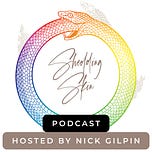

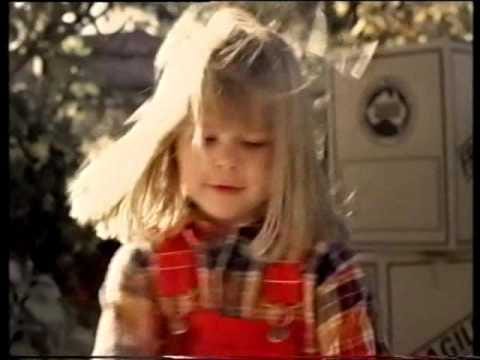

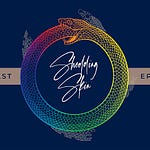
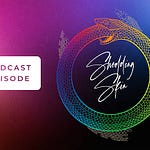
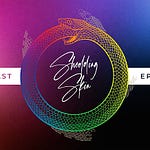
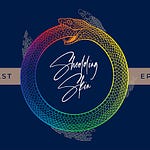
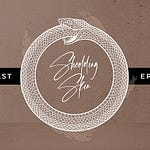
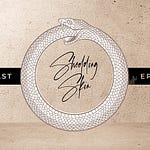

S1 Ep03 - Confessions of an Itchoholic